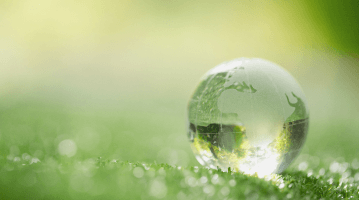MEEDDAT
By bringing together energy and ecology, the French government has demonstrated that sustainable development is an integral part of public policy.
History of MEEDDAT
Created in 2007, MEEDDAT was the product of a merger of the previously separate ministerial departments of ecology and energy.
- Since 1971, the Ministry of the Environment had been responsible for protecting nature and the environment. This became the Ministry of Ecology and Sustainable Development in 2002.
- The Ministry of Transport and Public Works, created in 1967, was responsible for land planning, road building, as well as town and country planning. It evolved through successive reforms, as environmental and social issues in land planning made their way higher up the list of priorities for successive governments.
Faced with the depletion of natural resources and biodiversity loss, the issues of the environment, land planning and energy have become closely linked. The use of energy and exploitation of natural resources are indeed environmental issues.
France’s new ministry adopted a sustainable development approach, taking a number of economic, social and environmental dimensions into account. This came in response to the Ecological Pact proposed by the Nicolas-Hulot Foundation in 2006.
Alain Juppé and Jean-Louis Borloo successively led the department, followed by Nathalie Kosciusko-Morizet. It was then renamed the Ministry of Ecology, Sustainable Development, Transport and Housing in 2010.
In 2012, the department once again took on the energy brief and became the Ministry of Ecology, Sustainable Development and Energy.
In 2014, MEEDDAT became the Ministry for the Environment, Energy and the Sea, headed by Ségolène Royal.
Since 2022, it has been known as the Ministry of Ecological Transition and Regional Cohesion.
Responsibilities and role in society
The current Ministry of the Environment, Energy and the Sea is responsible for sustainable development policy throughout France, including:
- energy and the energy transition;
- preventing natural and technological risks and industrial and nuclear safety;
- combating climate change;
- transport and urban planning policies, in conjunction with the Ministry of Housing;
- preserving the environment and biodiversity. Since July 2013, the Ministry has included the Directorate for Maritime Fisheries and Aquaculture. Once part of the Ministry of Agriculture, this matter is now becoming a sustainable development issue.
Action on sustainable fishing
Intensive fishing methods have shown their limits. So-called “halieutic resources”, i.e. fish and seafood stocks, are being depleted and their ecosystems damaged. Including the issue of fishing and aquaculture within the remit of the Ministry of the Environment is a response to the urgency of the situation. The Ministry’s aim is to transform fishing into a sustainable industry through various actions.
Eco-construction, waste management, biodiversity and climate... the environment isn’t the Ministry's sole focus when it comes to sustainability. It also plays a social role by improving quality of life and equality, for example, through accessible transport, housing and infrastructure.

THE THREE PILLARS OF SUSTAINABLE DEVELOPMENT
A holistic vision leading to a new model of society, taking into account the limits imposed by the depletion of natural resources, the need to reduce and eradicate inequalities, and the need to question the ways we generate value.
